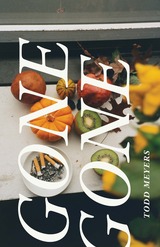
Dramatis personae.
This volume collects important examples of Greek literary portraiture. The Characters of Theophrastus consists of thirty fictional sketches of men who are each dominated by a single fault, such as arrogance, boorishness, or superstition. Unassuming in style, his character sketches nonetheless bear resemblance to the vivid figures of the period’s New Comedy. The Hellenistic poet Herodas wrote mimes, a popular Greek entertainment in which one actor or a small group portrayed a situation from everyday urban life, concentrating on depiction of character rather than on plot. Here too in a new text and translation are substantial portions of the mimes of Sophron, a Syracusan of the fifth century BC whose work Plato is said to have enjoyed, as well as a selection of anonymous mime fragments.
The extant work of Sophron and the anonymous mime fragments are newly added to the Loeb Classical Library in this edition. And Jeffrey Rusten and Ian Cunningham have updated their editions of Theophrastus and Herodas (both first published in 1993) in light of the latest scholarship.

THIS EDITION HAS BEEN REPLACED BY A NEWER EDITION.
This volume collects some of the liveliest examples of Greek literary portraiture. The Characters of Theophrastus sketches thirty hypothetical men, each dominated by a single fault, such as rudeness, superstitution, or greed. Unassuming in style, the sketches nonetheless bear resemblance on the one hand to Aristotle's account of faults and virtues and on the other to the vivid figures of Menandrian New Comedy. This new text and translation by Jeffrey Rusten is based on the most recent scholarship.
Herodas flourished in the 270s and 260s--the high point of Hellenistic poetry. His poems are choliambic mimes, dramatic dialogues that depict characters in everyday urban settings and situations. I. C. Cunningham presents a new translation of Herodas, based on his Teubner text.
Also included here, in a reprint of the earlier Loeb edition by A. D. Knox, are the fragments of Greek poetry in the choliambic meter--especially those which offer a tantalizing glimpse into the raucous and sordid world of Hipponax--and the lyric iambics on themes of Cynic philosophy by Cercidas.

How to cultivate Greek heroes and athletes.
In the writings of Philostratus (ca. AD 170-ca. 250), the renaissance of Greek literature in the second century AD reached its height. His Life of Apollonius of Tyana, Lives of the Sophists, and Imagines reconceive in different ways Greek religion, philosophy, and art in and for the world of the Roman Empire. In this volume, Heroicus and Gymnasticus, two works of equal creativity and sophistication, together with two brief Discourses (Dialexeis), complete the Loeb edition of his writings.
Heroicus is a conversation in a vineyard amid ruins of the Protesilaus shrine (opposite Troy on the Hellespont), between a wise and devout vinedresser and an initially skeptical Phoenician sailor, about the beauty, continuing powers, and worship of the Homeric heroes. With information from his local hero, the vinedresser reveals unknown stories of the Trojan campaign especially featuring Protesilaus and Palamedes, and describes complex, miraculous, and violent rituals in the cults of Achilles.
Gymnasticus is the sole surviving ancient treatise on sports. It reshapes conventional ideas about the athletic body and expertise of the athletic trainer and also explores the history of the Olympic Games and other major Greek athletic festivals, portraying them as distinctive venues for the display of knowledge.
READERS
Browse our collection.
PUBLISHERS
See BiblioVault's publisher services.
STUDENT SERVICES
Files for college accessibility offices.
UChicago Accessibility Resources
home | accessibility | search | about | contact us
BiblioVault ® 2001 - 2025
The University of Chicago Press









